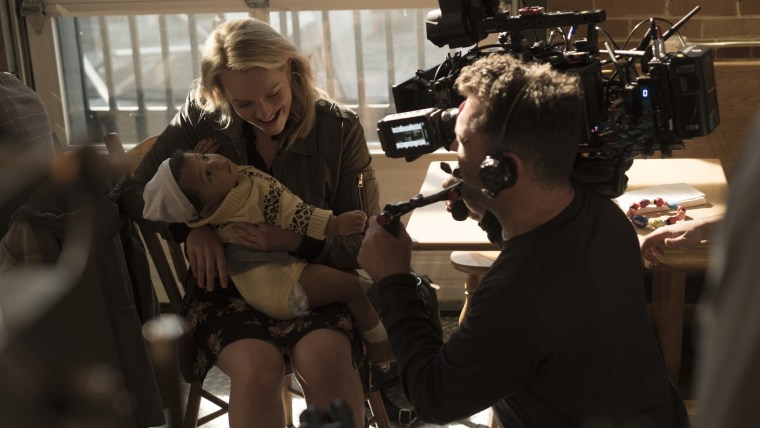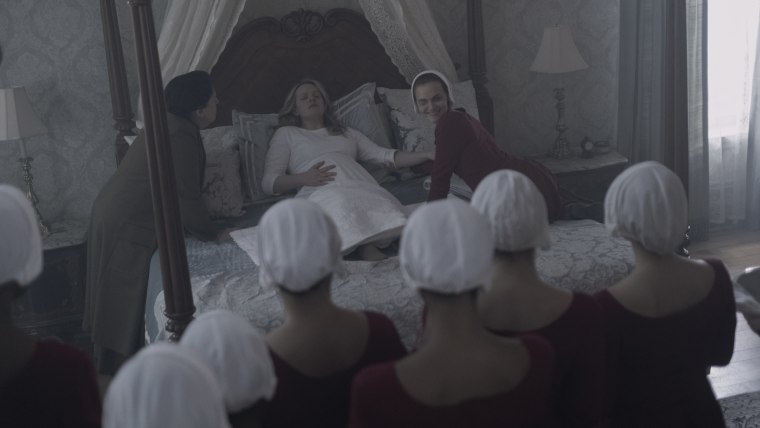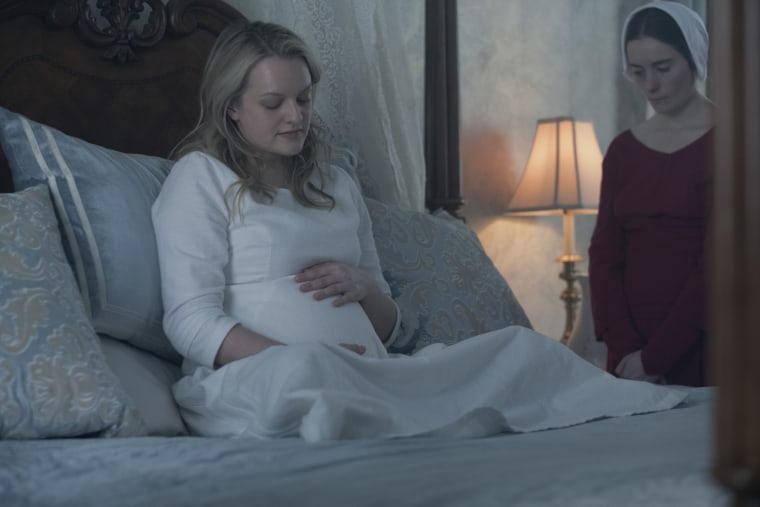Warning: This article includes spoilers for Season 2, Episode 10 of "The Handmaid's Tale."
The writer behind one of the most talked-about episodes of “The Handmaid’s Tale” had no idea how relevant the episode would end up being until it was released Wednesday.
In the episode, “The Last Ceremony,” June/Offred (Elisabeth Moss) is briefly reunited with her daughter, Hannah (Jordana Blake), who was initially taken from her in the series’ pilot, only to be separated from her again.
By Wednesday, the Trump administration's policy of separating migrant children from their parents at the border had been dominating news headlines for days.
“It’s unbelievable and uncanny,” said the episode writer, Yahlin Chang, who has also worked as a line producer for the Emmy-winning show. “I wish we could watch this show and be like ‘Wow! That’s crazy. That would never happen in America. We would never separate children from their mothers.’”
Before writing the episode, Chang said, she did extensive research, including interviewing social workers, child psychologists and experts at the U.N. to understand the psychology behind what happens when a child is forcibly separated from a parent.

“This usually happens in countries very far in totalitarian regimes, so I got a lot of stories from there,” Chang said. “The U.N. expert told me how the parents who are saying goodbye to their kids and who are being hauled away usually walk away smiling because they want the last image that their child has to be a positive one.”
Chang added that in her research, the U.N. expert told her that children might feel anger and resentment because all they know is that they want a parent who is no longer there.
As a mother, Chang said she felt a personal connection to this episode as well. “I have a 7- and 9-year-old so I just imagined what it would be like being in these scenarios with them. I thought about what I would say, what they would say, how they would react. I know what kids that age sound like — at least my kids — and that helped in terms of keeping my scenes true and authentic.”
“The Handmaid’s Tale,” which premiered on Hulu in 2017, earned eight Emmy Awards and two Golden Globes in its first season. Adapted from Margaret Atwood’s 1985 novel of the same name, the show takes place in a fictional totalitarian society that used to be a part of the United States and is ruled by a fundamentalist regime facing environmental disasters and a plummeting birth rate. Because of this, women are treated as properties of the state and the few remaining fertile women are forced into sexual servitude.

Critics have also praised “The Handmaid’s Tale” for being timely and relevant to today’s society, and Chang added that being able to work on the show at this time has been a privilege.
“It’s amazing hearing about and seeing women from all over the world who are making their own handmaids’ costumes," she said, adding that her own perspective as a woman has helped her tap into the characters’ minds and motivations. “It helps when spinning out a dystopian narrative of what happens down the road if you begin to strip women of having control of their own bodies, if you strip women of their agency or strip them of their reproductive rights. What is the nightmare scenario that could ensue? What are the consequences of actions like this?”
Chang said she’s glad that the latest episode has sparked conversations, and hopes that it can also lead to changing public perception on certain issues.
“If people can watch this show and find themselves emotionally wrapped in these scenes," Chang said, "that’s empathy they can translate out into the world toward real parents and kids who are separated and need to somehow find their way back to each other.
“If this episode in particular reminds people of the innate compassion they would feel toward these families, I would be so happy.”
Follow NBC Asian America on Facebook, Twitter, Instagram and Tumblr.


